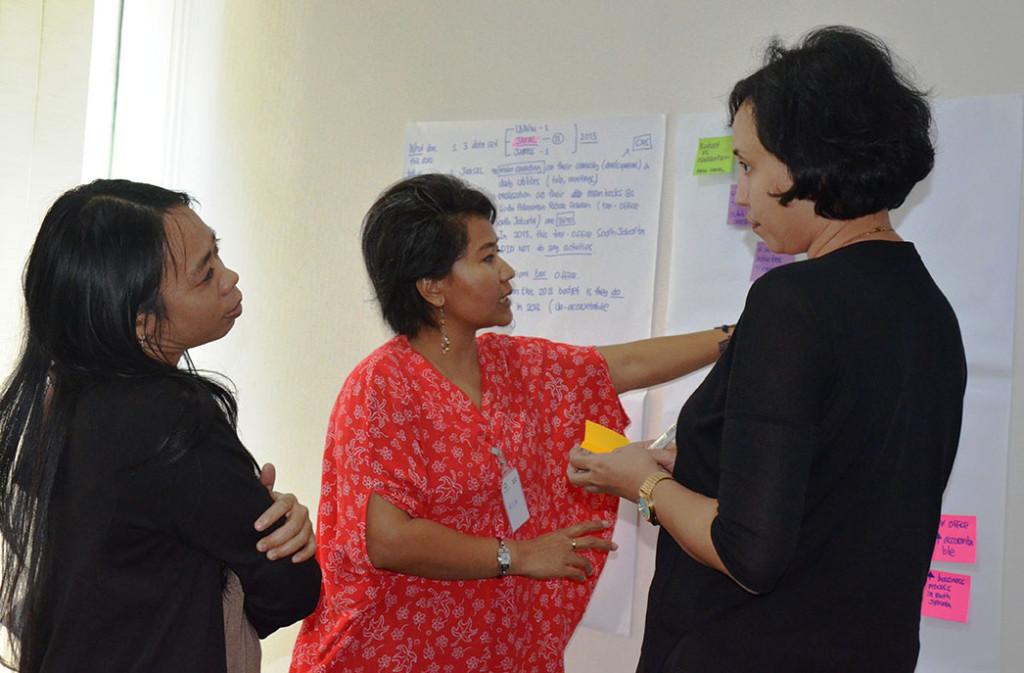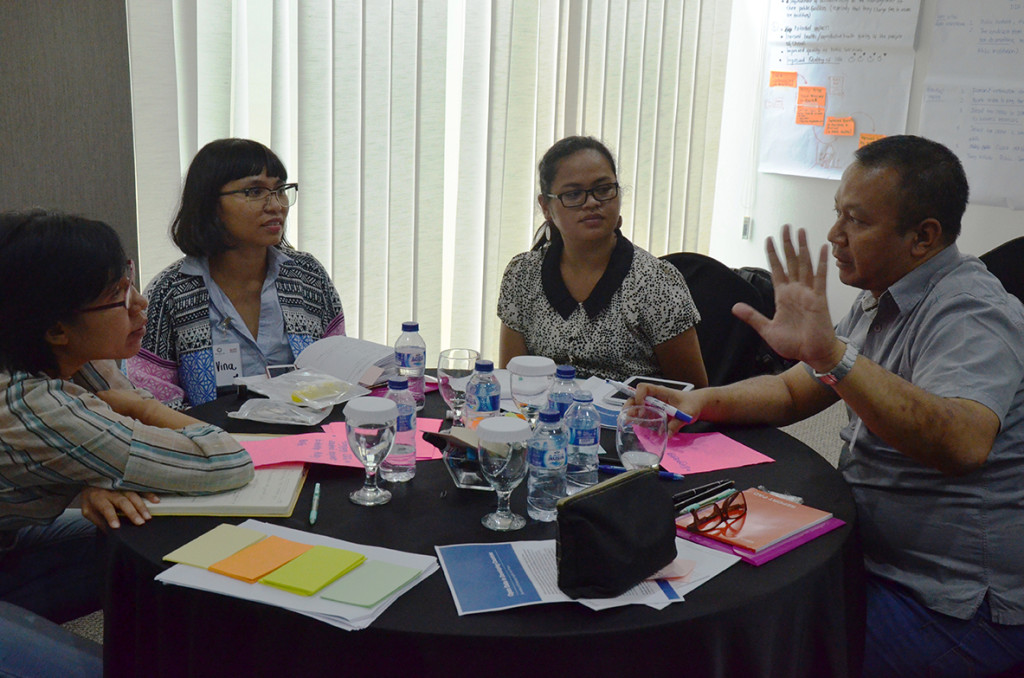
In recent years, several stakeholders have pushed for the creation and implementation of programs related to open data especially in the context of governments, aid agencies, businesses, academics, civil society organizations, and civic hackers. It is argued that greater openness in data will address problems, issues, and challenges related to governance, economic growth, service delivery, and social inclusion.
Several initiatives at the international level were popularized in recent years to encourage more openness. The World Bank, for example, made freely available a number of datasets “to foster innovation and increase transparency in development, aid flows, and finances”. In a similar fashion, Aid Data works on research and innovation “to make information on development finance more accessible and actionable. On the part of governments and states, the Open Government Partnership, of which both the Philippines and Indonesia are founding members, seeks “to secure concrete commitments from governments to promote transparency, empower citizens, fight corruption, and harness new technologies to strengthen governance.”
Open data, however, is not without criticism. Several commentators have argued regarding quality issues, lack of capacity of suppliers, unequal access, the weak correlation between provision and use, among others. But these criticisms do not necessarily discount the power of open data to improve transparency or enhance public service delivery. We think that these just point to the limitations in harnessing the benefits that can be derived from open data.
One major limitation in the open data ecosystem is the lack of individuals and organizations with the capacity to engage with open data, highlighting the need for education, for better user understanding, and for more engaged stakeholders. In a synthesis report of the Web Foundation’s Open Data in Developing Countries research projects, it was argued that capacity building of stakeholders is necessary so that opening data can lead to “widespread use and impact.”

The Open Data Lab Jakarta is committed to do its share in conducting capacity building activities in the region, at the level of local governments, communities, and among development partners. In a training on open data for development that the Lab conducted in August 2014, there were five main realizations that the participants from the Southeast Asia Technology and Transparency Initiative and the Making All Voices Count teams were able to arrive at regarding how open data can be optimized to achieve development outcomes.
- Data can be used to make lives better. The work of Transparent Chennai, one of the Web Foundation’s Open Data in Developing Countries (ODDC) research partners, has shown that mapping public toilets can make access to these services better when data is used as tool by civil society organizations to advocate for its use by city governments to inform their planning processes. Across the developing world, there is a growing evidence base on how open data has improved public services and transparency.
- The road to data use and impact is not simple. Several of the initiatives assessed during the training resonate with a key finding in the ODDC cases – that there are gaps to overcome before data can make lives of people better. This include, among others, poor data quality, slow/low internet connectivity, and scarce technical skills, even among intermediaries. Thus, there is a need for more resources to overcome these barriers and achieve open data’s intended impacts.
- More open data advocates are necessary. As the challenges are many, there is a need to create an enabling environment, especially at the local level, so that stakeholders can supply and use data. Stakeholders may include donors willing to fund open data experiments and research projects, governments that are willing and capacitated to proactively publish data, intermediaries that are skilled to transform data into information that can be useful for both government and citizens, and citizens who have the capacity to hold their governments to account.
- Capacity building is the key. It is important to capacitate governments in proactively disclosing data to the public. It is also important to capacitate intended users in accessing data and also making the same available to others. More than this, however, there is a need to change behaviour in such a way that governments are more open and transparent and that citizens will still value engaging with government. A change in knowledge and skills, without a change in attitude, is insufficient.
- There is a need to cascade international and national discussions to the local. While policies and portals are necessary and building national enabling environment is critical, the discussion should not stop at this level. Sub-national efforts should go alongside national initiatives so that the benefits can be reaped in local communities where people live and interact with government on a regular basis.
The Jakarta Lab works to harness open data and its potential to instigate positive social change. By working with, enabling and increasing civil capacities, we aim to increase transparency and better governance through open data.
To know more about what we do and the trainings we conduct, visit our projects page or contact us.
Leave a Reply